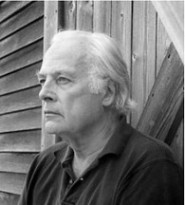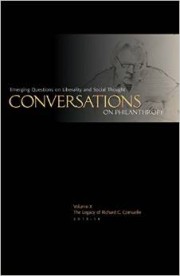The Good, the Bad, and the Charitable
Robert Atkinson and William Dennis both critique the philanthropic tax exemption in the United States in a manner reminiscent of Augustine’s early pleas for chastity: “IRS, grant me taxation, but not yet.” Although both essays point to current problems generated by the exemption, the writers recognize that when bad policies are deeply entrenched, the exemption might serve as a coping mechanism. Each of the two essays thus sketches out an (effectively) ideal fiscal regime in which the tax exemption for charities is no more, as well as a few preliminary steps toward the author’s ideal. Dennis helpfully dubs this sort of thought experiment “Rogge’s World,” in which we consider what the merits of a policy might be in a more sensible overall policy regime.
Like Atkinson’s World and Dennis’ World, my ideal policy regime lacks a tax exemption for charitable organizations. But I remain unconvinced of significant portions of their arguments, taking issue with aspects of each author’s depiction and ordering of alternative policy regimes. In the interest of brevity I focus on the areas of sharpest disagreement. That means offering a critique of Atkinson’s ideal (the Good) and a counter-critique of Dennis’ appraisal of the current regime (the Bad).
In engaging with both authors, I think it is fair to refer to Atkinson’s preferred approach as state-centric and Dennis’ as market-centric. In using this terminology I do not mean to reduce important questions to a market-state dichotomy, but merely as shorthand for the distinction between charitable activities undertaken with public funds as opposed to those for which revenue comes from private property and the competition for donations. Whereas Atkinson wants to eliminate the tax exemption to bring charity and the state closer together, Dennis wants to do so in order to push them further apart.
Atkinson’s Good Ain’t So Good
Atkinson’s World—his ideal of a Neoclassical Republic—is one in which the state abandons any “liberal neutrality towards various life plans” and instead actively promotes the cultivation of human excellence. He contrasts the value-neutral or pluralistic market model of philanthropy with a state-centric model that works toward a definite hierarchy of values, tightly linking underlying moral visions with the institutions that determine how philanthropic resources are allocated. To support the market model of philanthropy, he argues, is to affirm both value neutrality and the goodness of individuals’ philanthropic decisions.
This position fundamentally misconstrues the nature of the market and of voluntary activity more generally. Correcting that misunderstanding exposes some deep cracks in the institutional foundations of Atkinson’s World.
The driving force of the market is not the affirmation of individual choices, but the ceaseless push to eliminate error and discover better ways of accomplishing ends (Kirzner 2000). The relentless process of weeding out failed enterprises can hardly be described as equating given choices with the good. The market model of philanthropy is not identical with the market of profit and loss, but the freedom to experiment with various projects and the competition for charitable dollars allow for a significant measure of social learning and adaptation. Markets ultimately rely on dissent and critique rather than popular approval.
The problem of grappling with failure is the first crack in the foundation of Atkinson’s World. Even well-meaning men who correctly discern Atkinson’s favored hierarchy of values can make mistakes about the best way to achieve those values, and changing technology and circumstances can make today’s effective solutions into tomorrow’s clumsy failures. How, in his state-centric system, are such errors to be detected and corrected? The absence of any discussion of opportunity costs or tradeoffs is especially troubling here. Within the context of his paradigmatic philanthropic project of education, for example, every dollar spent widening the net to find a potential paragon of civic virtue is a dollar not spent deepening the education of potential paragons so identified. In Atkinson’s story about double taxation there are only two groups: the civically virtuous who give and the free riders who do not give to causes that are assumed to be the wisest use of resources. He nowhere recognizes that someone might not give to project A because they believe that project B is more worthwhile, even according to a given system of ends.
Atkinson’s only nod to concerns of effectiveness is his blithe assertion that “this neoclassical version of philanthropy would … seek the most efficient provider in terms of real productive efficiency” (2012, 19). This is begging the question. More troubling, the next sentence goes on to admit that this regime “would have a preference for public rather than private funding” (19). Far from enabling error correction, public funding has a strong tendency to entrench errors (Pennington 2011, ch. 6). It eliminates the opportunity for donors to divert their funds elsewhere and the incentive for competing philanthropic entrepreneurs to detect those errors in the first place. Public funding likewise slackens the incentive of the public-spirited to monitor the effectiveness of projects. Even if they know that services are being provided poorly—say in the case of ineffective public schools—that knowledge does nothing unless they can create a sufficient political groundswell to overcome the entrenched interests of current providers. In an attempt to solve the free-riding problem of funding, state provision creates a free-riding problem in project evaluation (Tullock 1971).
But even if the competitive pressure of the market for philanthropy does better at eliminating failures, Atkinson may object that there is no guarantee it will do so according to his preferred hierarchy of values. Some individuals will even choose to give little or not at all. All of this is true. There is no guarantee that private donors will choose according to a given scale of values. But this is equally true of his preferred regime.
A second crack in the foundation of Atkinson’s World is this: once the power to subsidize his favored values is handed over to the state, there is no guarantee it will actually be used to support them. Any freedom of choice over means entails a freedom of choice over ends. This is no less true of discretionary authority given to political agents. Any set of decision rights allows the individuals holding those rights to pursue a variety of ends with them. Why should we expect a state empowered to pursue ends deemed public benefits to secure a Neoclassical Republic and not Imperial Tyranny or mere Petty Cronyism?
Imbuing high offices with wide powers is a dangerous price to pay for any vision of human excellence. But setting aside the obvious problems of power—that it can be abused, draws the ambition of the vicious, and can corrupt the virtuous—there is still something deeply troubling about the hierarchy of values that Atkinson extols. The “particular vision of human excellence” that he wishes to enshrine is “the most fully developed individuals in service of the public good” (2012, 19). This means, unambiguously, that the best and the brightest wield political power. The role of philanthropy in this regime is thus to “enable everyone in the Republic to become a leader of the Republic.” The exercise of political authority is not merely instrumental to the realization of human excellence, but is constitutive of the highest forms of that excellence.
The deeply troubling exaltation of state authority is a cavernous rupture in the moral foundations of Atkinson’s Neoclassical Republic. Whatever one may think of the possibility or desirability of a given hierarchy of values underpinning the institutional regime of a nation, this is the wrong set of values. At its best, political leadership is a weapon against tyranny or injustice. No weapon has ever been the key to human flourishing or civilization, but only a means to protect it from other destructive forces.
Excellence in commercial, philanthropic, spiritual, artistic, scholarly, and even routine domestic activities—the most meaningful sphere of life for most individuals—far outweighs the excellence of political life. There is a crucial difference between the exercise of political power and these other activities: it is by nature rivalrous. One individual can only lead the Republic to the extent that other individuals follow, and thus do not lead. By contrast with excellence in leading, and its corollary of servility (Wagner 2007, ch. 8), excellence in private endeavors leaves other individuals free to pursue their own excellence. Often—as is the case in market endeavors—the excellence of one individual even lays the foundation for the excellence of others. There is a telling omission in Atkinson’s essay: for all his talk of merit, he does not mention the merit or excellence of the philanthropist. The good of charitable giving is subsumed to the political good as interpreted by agents of the state. That is no ideal worth striving for.




